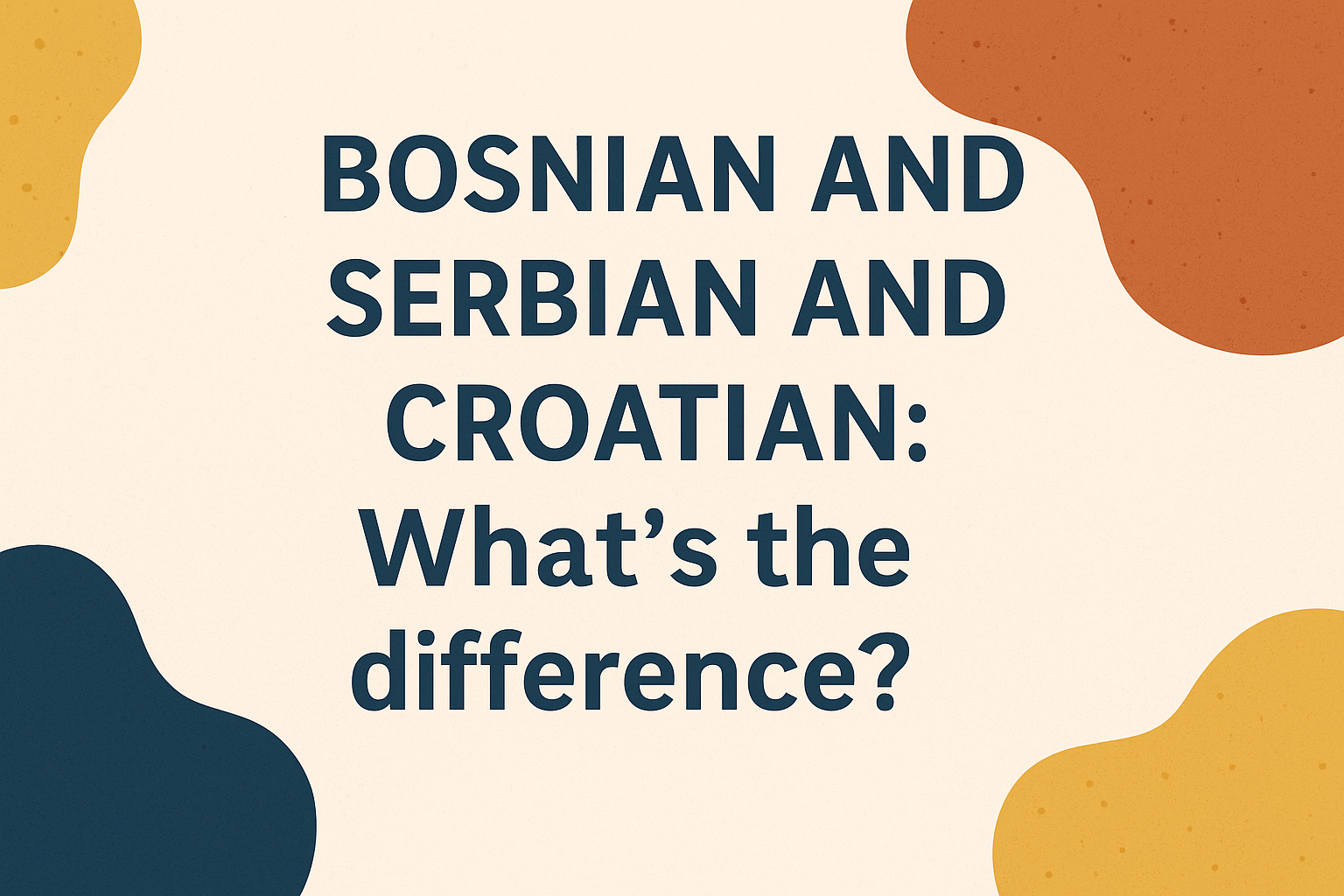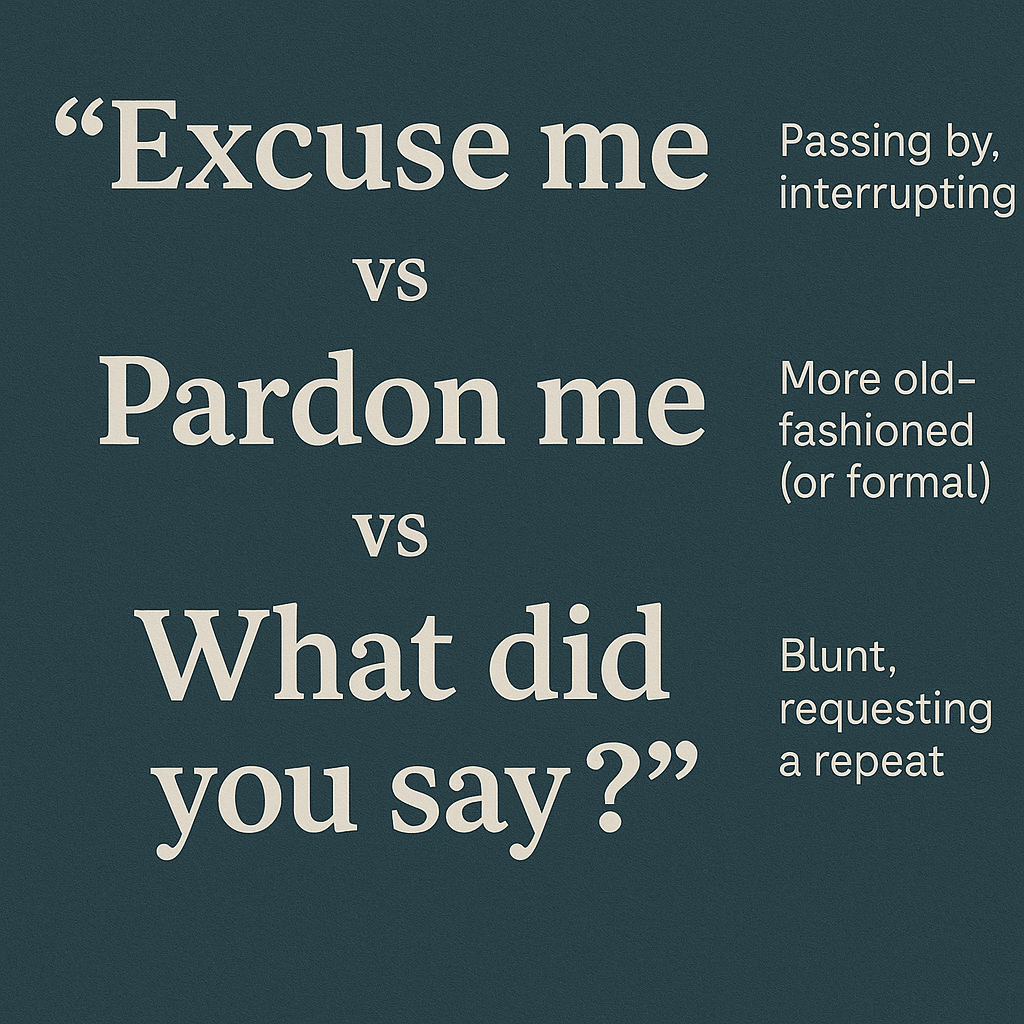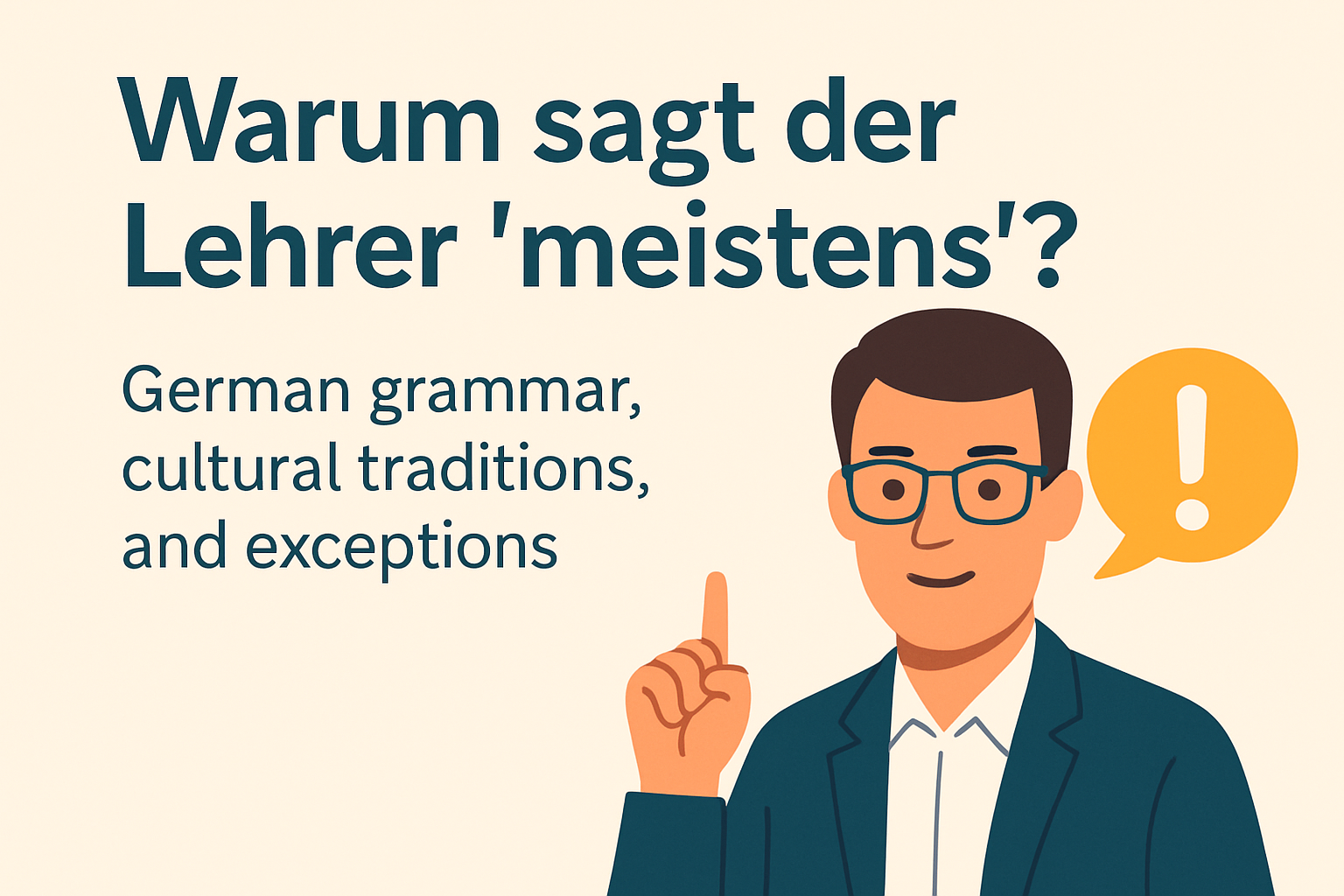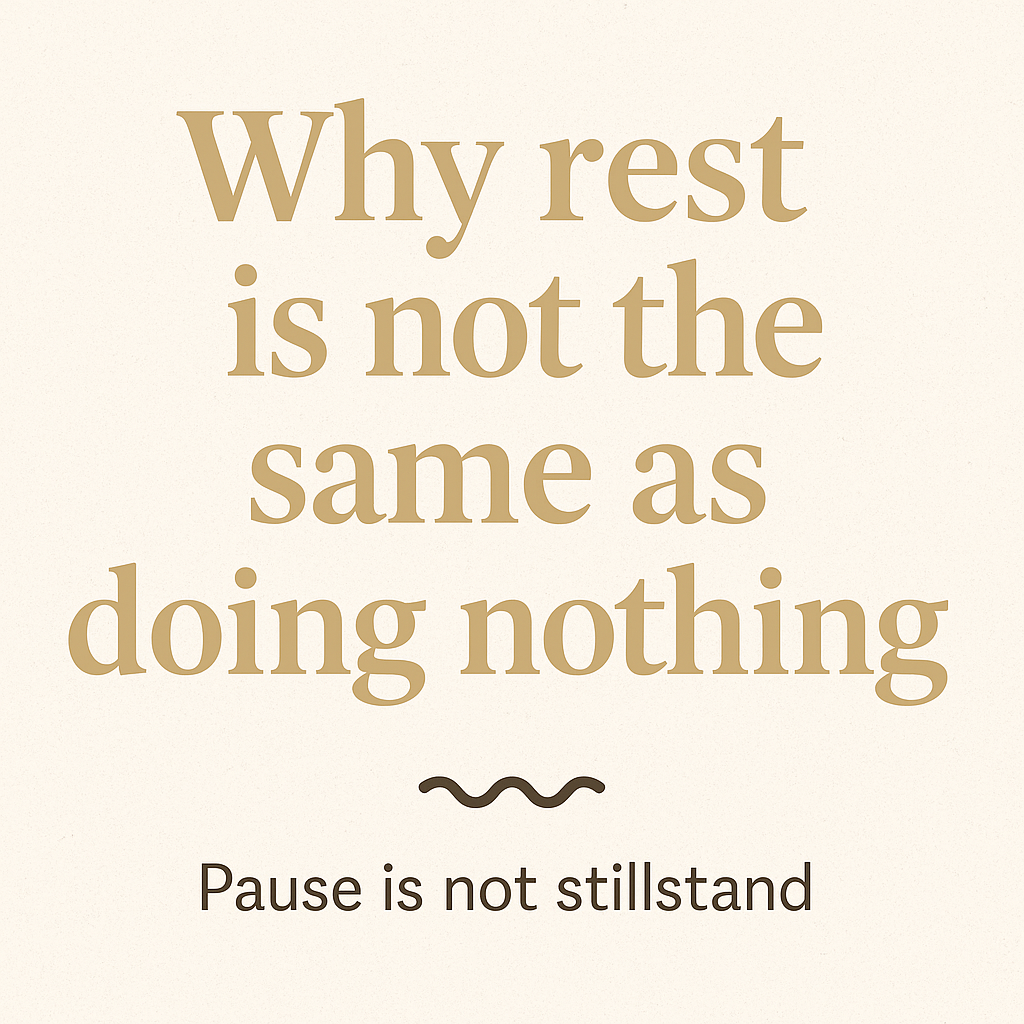Part of the series: Words You Know — Meanings You Don’t
By Tymur Levitin, Levitin Language School
The Question That Changes Everything
How do you react when you don’t hear something? Do you say:
- “Sorry?”
- “Excuse me?”
- “Pardon me?”
- or even “What did you say?”
Most learners think they’re interchangeable. But the truth is: each one sends a different message. Sometimes polite. Sometimes aggressive. Sometimes neutral. Let’s break it down.
“Sorry?” — The Most Natural Way
This is the default choice for most native English speakers:
- Friendly, light, common
- Used in casual or neutral situations
- A soft way to say: “I didn’t catch that. Could you repeat it?”
Examples:
- “Sorry? Could you say that again?”
- “Sorry? What was that?”
Pros:
- Sounds natural
- Works in most social contexts
- Does not demand formality
Cons:
- Too casual for very formal contexts
- Might sound vague if overused
“Excuse Me?” — Attention or Challenge?
This phrase is a double-edged sword. It can mean:
- A polite request to repeat something
- Or an expression of surprise or offense
Examples:
- “Excuse me? I didn’t hear you.”
- “Excuse me?! What did you just say?”
Pros:
- Works in formal contexts
- Useful for attracting attention politely
Cons:
- Can sound confrontational depending on tone
- Often used when speaker is shocked or offended
“Pardon Me?” — Elegant, Soft, Slightly Old-Fashioned
This is considered very polite in British English. Less common in American English.
Examples:
- “Pardon me? Could you repeat that, please?”
- “Pardon?”
Pros:
- Very polite and soft
- Good for formal or respectful settings
Cons:
- Can sound outdated or overly formal in casual speech
- Rare in modern American usage
“What Did You Say?” — Literal, Risky, Direct
This phrase can sound rude if not said gently. Often used when you are shocked or challenging someone.
Examples:
- “What did you say?!” (angry)
- “Sorry, what did you say?” (neutral)
Pros:
- Direct, clear
- Useful in conflict or correction
Cons:
- Can sound aggressive
- Must be softened with tone or modifiers
Tone Changes Everything
У "The words you use matter. But the tone you use matters even more.
Compare:
- “Excuse me?” (flat tone) = neutral request
- “Excuse me?!” (sharp tone) = shock or confrontation
- “Sorry?” (gentle) = normal, friendly
Cultural Comparison
German:
- “Entschuldigung?” = formal attention or request
- “Wie bitte?” = polite way to say “Sorry, what?”
Russian / Ukrainian:
- “Простите?” / “Вибачте?” = often sounds heavier than “Sorry?”
- No direct equivalent to light “Sorry?” — risk of sounding too formal or too cold
Spanish:
- “¿Cómo?” = neutral, casual
- “¿Perdón?” = polite, most common
- “¿Disculpe?” = more formal
What We Teach Instead
At Levitin Language School, we teach not just words, but usage:
- What native speakers actually say
- How it sounds in real life
- Which tone matches which phrase
You don’t just memorize expressions — you learn to feel them.
Related Posts in the Series
- Thank You, Thanks, Thanks a Lot
- Sorry vs Excuse Me: One Mistake, Two Cultures
- I Love You Doesn’t Mean What You Think
🏦 Author: Tymur Levitin, Founder and Senior Instructor
🔗 Meet your teacher: Tymur Levitin →
© Тимур Левітін. Всі права захищені.
🔹 Series: Words You Know — Meanings You Don’t
🔸 Choose your language: https://levitinlanguageschool.com/#languages
Говоріть вільно. Вчіться розумно.






















